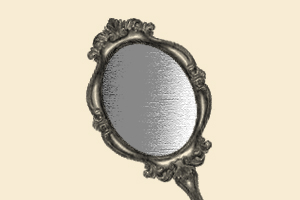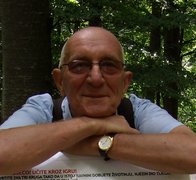
Miroslav Bertoša (Beograd, 1938.)
historian, columnist and publicist
I am a historian by profession. With the papers of the historiographic trade. I research the chosen space, themes and periods. The past is the unknown, and sometimes also a dangerous area full of perverted, twisted, badly elucidated findings adapted to a certain ideology; full of imprecise and incorrect pieces of information. Besides that, it is also under surveillance. Still, I stick to it… In an early phase, through books and old papers, I already spontaneously felt the joy of discovering the records of the past. I wished I could become the mediator. As small and weak as I am I have dared to come under the stars, under the light of the faded planets, still leaving behind their light-yellow, quivering glint. Because the past is nothing else then a small, burnt out universe, its life gasped away, whose phantom light, soundless scream, hopeless sigh, partly preserved record, reaches us. I anticipate that I will, despite the accumulated years of my life, continue writing historical texts in my own distinctive manner as long as I continue to feel this fascinating glint of the faded past.
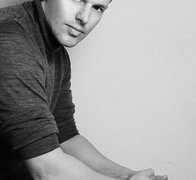
Sandi Blagonić (Pula, 1972.)
ethnologist and cultural anthropologist
Is it possible to answer the question “why do I write” in a less poetical manner than: I-write-because-it-is-in-my-job-description? (Sometimes I do write for pleasure). I write slowly and with difficulty (or maybe I am just impatient). I camouflage my guilty conscience surfacing periodically because of the lack of discipline and will for this onerous task (to which I enthusiastically superimpose other, mainly physical activities for which neither fairs, nor awards, nor encyclopaedia entries exist) by using an (unconvincing) excuse lent from Danilo Kiš’s interview: I write selected, not collected works, which will, in the end, result in an “opus” consisting of the works selected in the terms of quantity, and collected in the terms of quality.
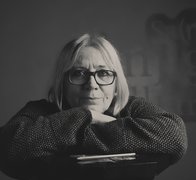
Nadežda Čačinovič (Budimpešta, 1947.)
philosopher, feminist and translator
Who am I? I am a professor of philosophy – to avoid the overly pretentious term “philosopheress”, although its feminine form, due to being quite rare, changes the way of looking at it to a certain degree. Firstly as a self-reflection, and then as a habit of finding proper reasons for certain attitudes and behaviours, philosophy is quite demanding and it defines your life. Still, my life may be defined even more by books – in every aspect but the most private one which I haven’t taken here as a subject. The books are my surrounding and my frame of reference. I do not think it “distances me” from life. The books are life, just a condensed one.
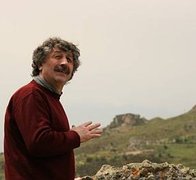
Sinan Gudžević (Grab na Goliji, 1953.)
writer and translator
Born on a mountain, living in a plain. Almost everyone considers me a highlander, even though I have spent one-third of my life in big cities like: Belgrade, Rome, Berlin, Naples, Rio de Janeiro. I am currently living in Zagreb, which is not the highest ground I could have reached, but I could have fallen much lower, especially when it comes to the height above sea level.
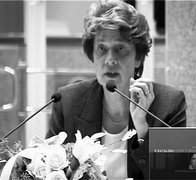
Aleksandra Horvat (Zagreb, Hrvatska, 1947.)
librarianship theoretician
translator, I became a librarian by chance. In the old building of the National and University Library, situated at Marulić Square, I discovered a book catalogue which in those pre-internet times served to me as a mirror showing the past and the present of the society. Book catalogue becomes my first teaching subject at the Faculty of Humanities and Social Sciences, within the newly established Department of Librarianship, where I first work as an assistant and then as a professor. I enjoy the conversations with the students, the seminars, and the lectures. I am gradually discovering new subjects connected to my field of work such as professionalism and professional values, the role and the mission of libraries within the society, the effect copyright laws have on the functioning of libraries. Consequently, I begin teaching those subjects both in the country and abroad. Nowadays I am a member of Croatian Library Association and a proud owner of a self-willed dachshund.
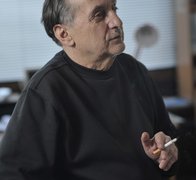
Branko Kukić (Čačak, 1950.)
poet, editor and publisher
The ones who create, the ones who destroy in order to build – but also the ones who are the opposite of them – carry both within their conscious and subconscious the obsession with the Other. The subject under discussion is the act of doubles. Rimbaud used to say, “I is somebody else”. Flaubert has claimed, “Madame Bovary is me”. That Other is a reached goal, a realized intention, a fulfilled promise, a strong oath. It is the confirmation of the creator as the one establishing connections, building webs, setting traps, and doing all of that in the name of the Great Game or the Great Deed, which goes by the name of art, science, cognition or riddle. According to my belief, that’s how the biography of any person who surrender themselves to the Other, who transform themselves into the Other looks like. My biography resembles this transformation, too.
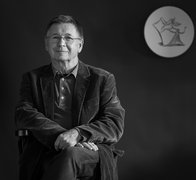
Zvonko Maković (Osjek, 1947.)
art historian, poet, essayist
Along with the invitation to this year’s Fair there is a note saying that every author should introduce, or rather write about themselves. For days I have been looking into the empty screen of my computer not knowing how to write the first sentence. Then I gave up and decided not to come to Pula. Afterwards, I started thinking that it would be foolish not to attend the always enjoyable meeting point of different people, among whom there are a lot of dear friends of mine. So I changed my mind and decided to write “something-aboutmyself” after all. This is it: my name is, as it is stated above. I was born a long time ago, I have stopped counting my own years a long time ago, and I am living the life in the way I have always wanted: I am reading, watching around and writing. So, I am a happy man. See you in Pula!
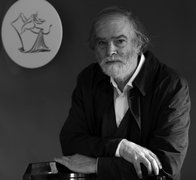
Tonko Maroević (Split, 1941.)
poet, translator, art and literary critic
He has been reading since he was five, and he has been watching paintings more often since he was fifteen. After that, he decides to write about them, books and paintings, to gain the right to continue reading and to attend exhibitions. He has been thankful his entire life from the erudite and emotional point of view to the classical high school he had attended as well as to his family origins from Stari grad on Hvar, which give him the possibility to sometimes flee from paper to reality and dreams, and then again from reality and dreams to book pages and gallery walls. Book Fair(y) is an opportunity for him to meet people of books who wrote the books on people.
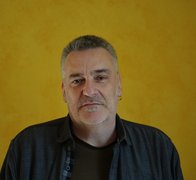
Dario Marušić (Kopar, 1957.)
musician and ethnomusicologist
There has been a lot going on, especially music and Istria; lectures, stage appearances, journeys, creations and inventions. All of that belongs to the past in a certain way. The only thing I am sure of is that I am nowadays still ready for cooperation, being at the same time against competition.
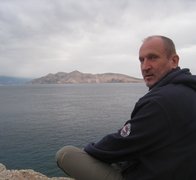
Robert Mlinarec (Zagreb, 1966.)
writer, editor and translator
He was born in Zagreb fifty years ago. He has been traveling the world in an intensive manner, but he still hasn’t been able to answer this question: “Is a whole life spent in Europe (kindergarten, school, high school, army, university, graduation ceremony, job, house, wife, children, annual leave, bank loans, cars, ski vacations, insurances, reading newspapers, playing cards on Fridays, car crashes, military exercises, hiking on Sundays, mistress, computers, social networks, ceremonious dinners, concerts, hanging out, the 30th graduation anniversary, grandchildren, painting window frames and a whole lot of other worries) worth a single warm winter day in the South Pacific?”
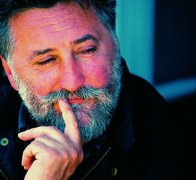
Tahir Mujičić (Zagreb, 1947.)
writer, playwright and screenwriter
Ich, Tahir Mujičić, was born in Zagreb, on 21 July 1947. I reckon today that my being born on the exact date as Hemingway and as an astrological Cancer like Krleža, was meant to be. I have never intended to become a writer, but I did become one, probably because it is harder to be a miner. As a child, I yearned to become a boxer, a painter... I also yearned to engage in theatrical work. And that was actually what made me a writer. Ich, a retired writer, am living in my hometown and on the island of Hvar, as much as I can and in the way I can, with my granddaughters, the sun, the sea, vittles, memories and stories yet unwritten.
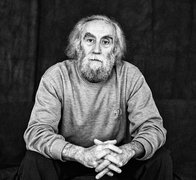
Josip Osti (Sarajevo, 1945.)
writer, essayist and translator
I am involved in literature as a reader, a poet, a prose writer, an essayist and a translator because in my early youth I was drawn to it through fairytales my grandma used to read, or tell me. Scheherazade continued telling me stories because the reading of the complete translation of Thousand and One Nights made me grow up sooner. While translating (from Slovenian) I have realized that reading was the best option, and while writing I have realized that the writer is saving his life or rather postponing death in that way, as Scheherazade was once saving hers by telling stories. And there’s also the old age – as a bilingual writer, or more accurately as a writer who wrote and published his first poems when he was fifteen and who was writing first in one language, Croatian of Sarajevo provenance, for almost thirty years, and then in the other, Slovenian language for twenty years, I feel and I consider myself a young poet, or writer. This, I believe, has been confirmed in the form of my books.
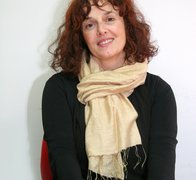
Tatjana Paić-Vukić (Aleksinac, 1963.)
orientalist and translator
I live in Zagreb and I work within the Oriental Collection of the Archive of the Croatian Academy of Science and Arts. I deal with Arabic and Turkish manuscripts, research the cultural history of Bosnia and teach the Arabic language at the Faculty of Humanities and Social Sciences. Enchanted by Adonis’ poetry I left the Early Modern period just to get back to my old love - contemporary Arabic literature.
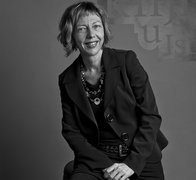
Tatjana Peruško (Pula, 1966.)
italianist and translator
I have been teaching Italian Literature at the Department of Italian Language and Literature, Faculty of Humanities and Social Sciences in Zagreb since 1995. In the scientific and specialist texts I write, I mostly deal with contemporary Italian prose, which I translate in my spare time. I have translated twelve works of prose, among which The Invisible Cities and Palomar by Italo Calvino. I am a co-editor of the anthology of Italian short stories The Animalia, a member of the Croatian Literary Translator’s Association and a member of the editors’ team of the Festival of the European Short Story. I have written many articles and essays about Antonio Tabucchi and I have translated two of his dramatic monologues - Unrealized Dialogues and a collection of short stories The Game of Reversal. As a translator and an expert on Italian Language and Literature, I find Tabucchi’s style in prose particularly close to my taste because of the combination of lyricism and layered intertextual weave found in his works.
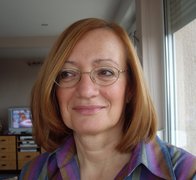
Mirjana Polić Bobić (Perušić, 1951.)
hispanist and translator
I am a full-time professor of Spanish and Latin American Literature at the Faculty of Humanities and Social Sciences in Zagreb. Latin American literature, which during my days as a student turned from being a marginal and unknown literature into being one of the most read literatures of the second half of the 20th century, has played a key role in my choosing that profession, which has also become my vocation. At that point, I was dreaming about completely devoting myself to the translation of Mexican, Colombian, Argentinian and other writers, and the whole world was reading them – like at a prior time the whole world read The Ingenious Gentleman Don Quixote of La Manche. It came out different from what I had expected and I gained an opportunity and a privilege to engage in scientific research, and teach at the institutions of higher education. Through this kind of work I have discovered new subjects and devoted myself to the earlier periods – from 16th to 18th century. I have published four books which include discussions, travelogues, correspondences etc which I had previously collected, translated and edited and which are written by our fellow Croats in Spanish language, carrying the characteristics of Spanish or overseas, colonial culture.
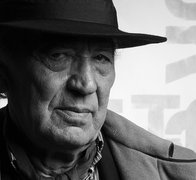
Milan Rakovac (Rakovci, 1939.)
writer and journalist
Why do I write? Because,I am better in doing this job than any other one. I was made a writer by my uncle, Janko Štifanić. I remember a few lessons which still drive through my veins: I have once written a homework – “the beauty of the nature is when my grandpa’s wheat sprouts so he makes twenty hundredweights”. Janko tears the page, “write again” he says, while the whippersnappers from the Drio la Rena (Behind the Arena) neighbourhood are playing cops and robbers. Then, go to music school, Janko said. I really hated that poor Ševčik (a workbook for violin) as much as I hated the fascists – in order not to play the violin, I had to become a writer. Then Janko said: let’s make the annual subscription for the Croatian National Theatre, and my poor mother gave all of her miserable paycheck for me and my brother. I was immediately overwhelmed by Brecht, Mother Courage, directed by Bojan Stupica: YES! When I was thirteen I realised I would never be the centre forward of Dinamo, and when I read Tolstoy’s Cossacks it was clear that I will become a writer. When I was 15 I indeed became one: at the time I was writing, illustrating and editing the illustrated class magazine – ČIR. Suddenly I am 24, I have the flu and I am writing poetry in our dialect, and Zlatko Gorjan, Zlatko Tomičić and Bepo Percan are are giving me my first award: so now I am officially a writer, if the Masters said so?!
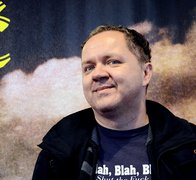
Dean Trdak (Zagreb, 1974.)
translator
I have been involved in literary translation for fifteen years. I translate from English, Italian and Portuguese, mostly literary fiction, although among the works I have translated some publicist works and a bit of poetry can be found. After majoring in English and Italian Language and Literature, along with a three-year degree in Portuguese Language and Literature I didn’t have any dilemmas regarding what I am going to do in life: journeys, translation and teaching languages. I don’t consider translation to be just a transmission of words and sentences from one language to the other, I rather think of it as an act of confronting audience with a culture less known to them. That audience were the readers, participants of foreign language courses as well as the viewers of the theatre play Femme Fadal to whom I tried, along with the director and puppeteer Morana Dolenc, to “translate” that mysterious and untranslatable word saudade.
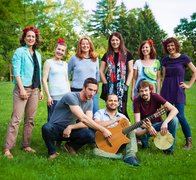
Bossa Banda i Marco Antonio da Costa Trio (Zagreb)
vocal ensemble
We are Bossa Banda, we sing Brazilian music, and in the spare time, we are professors, architects, economists, singers, tourist guides, translators, and mothers. We are accompanied by three great musicians hidden under the name Marco Antonio da Costa Trio: Zvonimir Šestak, Žiga Šercer, and Marco Antonio da Costa. If the weather and bio meteorological conditions are favourable we are barefoot, but we sing no matter what the conditions are (we pay no heed even to a snowstorm). We have gathered around a dream of having a little choir which would have sung Brazilian music, and that dream has grown bigger and became a band. Since the first show with Marco Antonio da Costa Trio we have been looking forward to every upcoming concert and we are overwhelmed with joy that we have the opportunity to dream with you.
